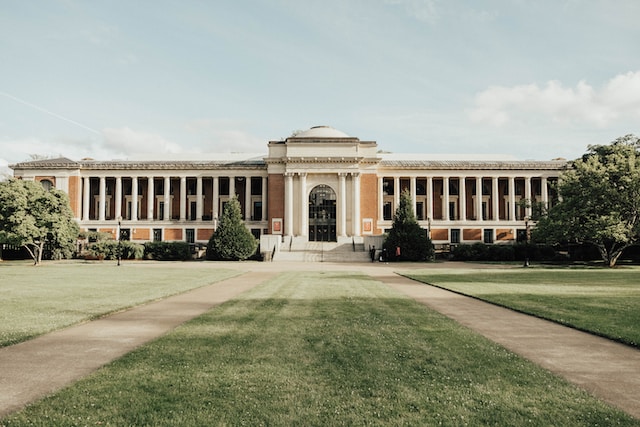Boston College is a private Jesuit research university located in Chestnut Hill, Massachusetts, United States. It is a mid-sized university with a student population of around 15,000, and offers undergraduate, graduate, and professional degree programs in a wide range of fields. As with any university, Boston College has its own set of advantages and disadvantages, which we will explore in detail below.

Pros:
- Strong academics: Boston College is known for its strong academic programs, particularly in business, nursing, education, and theology. The university is consistently ranked among the top 50 national universities by U.S. News & World Report and has been ranked among the top 25 best colleges for veterans.
- Jesuit education: As a Jesuit university, Boston College emphasizes a well-rounded education that integrates academic learning with social justice values, ethics, and service to others. Students are encouraged to think critically about important issues facing society and to develop a sense of responsibility for creating a better world.
- Beautiful campus: Boston College’s campus is situated on 175 acres of rolling hills and is considered one of the most beautiful campuses in the country. The campus features a mix of historic and modern architecture, including Gothic-style buildings, reflecting the university’s Catholic heritage.
- Location: Boston College is located in Chestnut Hill, Massachusetts, a suburban community about 6 miles from downtown Boston. This location provides easy access to a wide range of cultural, recreational, and employment opportunities in one of the country’s most vibrant cities.
- Strong alumni network: Boston College has a strong alumni network, with over 180,000 graduates living in all 50 states and around the world. This network can be a valuable resource for current students and graduates seeking career opportunities, internships, and other professional connections.
Cons:
- Cost: Like many private universities, Boston College is expensive, with tuition and fees approaching $60,000 per year. This can be a major barrier for many students who may not be able to afford the cost of attendance.
- Limited diversity: Boston College has been criticized for its lack of diversity, with a predominantly white student body and faculty. While the university has made efforts to increase diversity in recent years, there is still work to be done to create a more inclusive community.
- Workload: Boston College is known for its rigorous academic programs, which can be overwhelming for some students. The workload can be particularly challenging for students in science, technology, engineering, and mathematics (STEM) fields, who may have to take multiple labs and courses in addition to their regular coursework.
- Limited social scene: While Boston College is located near a major city, the campus itself can be somewhat isolated, with limited opportunities for socializing and entertainment. Some students may feel that the university lacks the vibrant social scene found at other colleges and universities.
- Strict policies: Boston College has strict policies regarding student conduct, including rules regarding alcohol and drug use. While these policies are designed to maintain a safe and healthy campus environment, they can feel restrictive to some students who may be used to more relaxed policies at other colleges and universities.
In conclusion, Boston College offers a strong academic program with a focus on Jesuit education, a beautiful campus, and a location that provides access to many cultural and professional opportunities. However, the cost of attendance can be a major barrier for some students, and the university has been criticized for its limited diversity and strict policies. Prospective students should carefully consider these factors and weigh them against their personal priorities and goals when deciding whether Boston College is the right fit for them.